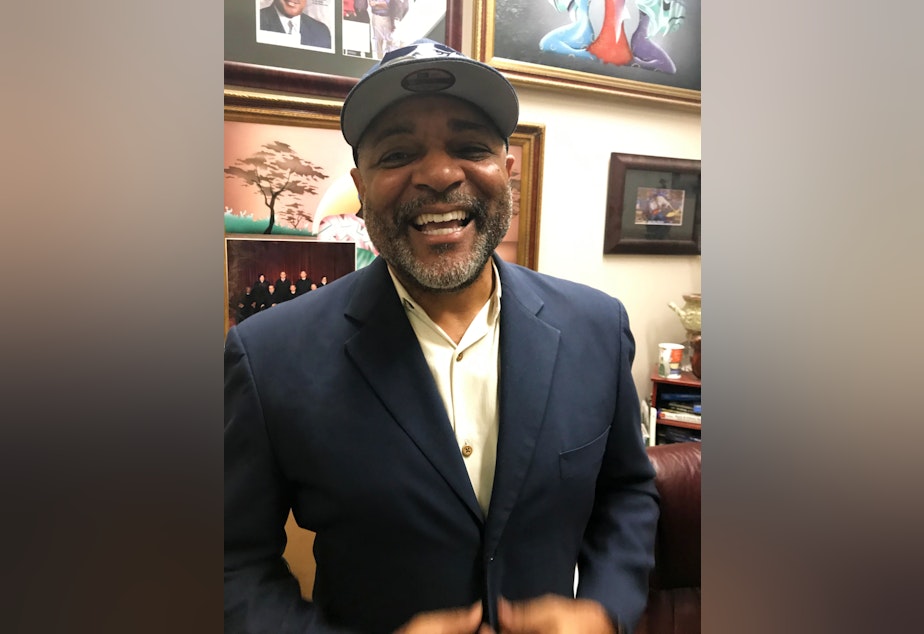Who would Jesus vote for? The tension between faith and politics in the Northwest

"I believe Jesus would vote for Elizabeth Warren,” said Dr. Carl Livingston.
But "I might be wrong about that," he added.
The role religion is playing in the Democratic presidential primaries isn't getting a ton of press. But candidates have been talking about their faith, particularly heading into the South Carolina primary this weekend, which is more diverse and less secular than most other states.
Joe Biden recently released the following ad.
Nationally, around three out of four Democrats say they’re absolutely certain or fairly certain they believe in God. But what does that mean when it comes to politics?
The role belief plays when people cast their ballots is complicated. Behind the polls are real people like Dr. Livingston, who teaches at Seattle Central College and is senior pastor at Kingdom Christian Center in Federal Way.
Sponsored
His life story reveals tensions between faith and politics, and between liberal and conservative values.
Four Seattle liberals on why they own guns and who they're voting for in the primary
For him, politics came first. He was raised in the Hilltop neighborhood in Tacoma back in the 1960s, where he received an early education in radical politics.
“I had relatives that were involved in the Black Panther Party or related organizations, trying to make change in fundamental ways, and so I was steeped in that coming up,” Livingston said.
But he said that when he was 13, his life changed after he had “a religious experience." He then joined a liberal Baptist Church “in the tradition of Martin Luther King.”
Sponsored
The next step on Livingston's journey was another unexpected turn, this time to the right. He decided to attend Oral Roberts University in Oklahoma, which was founded by conservative Pentecostal evangelist Oral Roberts.
That decision came almost by accident after he saw Oral Roberts on television.
“I didn't know that when they're taping the show they put the blacks in the front row. I thought it was going to be a very inclusive and fair place,” Livingston said, laughing.
Nevertheless, he attended and the experience of being a student at Oral Roberts University affected his faith and his politics.
“I voted for Ronald Reagan in 1984. I know how they think. They shaped me,” Livingston said.
Sponsored
At one point Livingston said he was even being groomed to become a conservative black commentator.
But Livingston rejected that role and returned to Washington state and to his roots. He said he could not turn his back on his liberal values and his support in particular for programs that help the African-American community, including affirmative action.
Today, he also rejects more conservative interpretations of the Bible.
“For me, it's not just about who and what God is and questions of how righteous and ethical or moral a person, it's about a third thing -- sensitivity to the poor,” he said.
That puts him at odds with many more conservative Christians, including some African-American pastors here in Seattle.
Sponsored
But Livingston’s faith also sometimes leads to conflict with political allies on the left, over abortion, for example, which he said he “has a problem with."
“Faith is the matrix and the guide and umpire. It's in control of the political decisions,” Livingston said.
“As I'm working out my politics, my faith is informing it. And I'm trying to do the religiously right thing," he said.
In Livingston's case, that means casting a vote for Elizabeth Warren. According to the latest Crosscut / Elway poll, most Democrats in Washington state -- religious or not -- plan to make a different choice.




